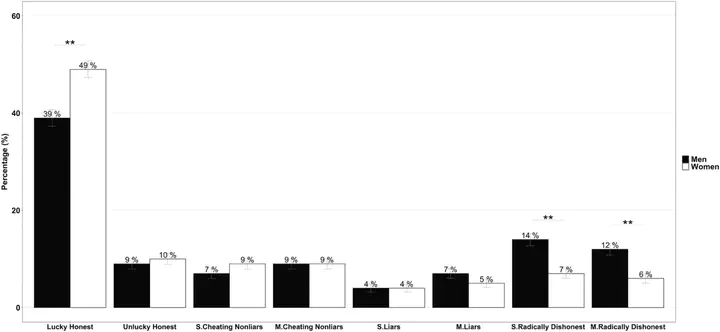 Image credit: AMG
Image credit: AMGAbstract
Dishonesty has an enormous impact on all aspects of our society. It causes huge financial losses annually, so efforts to understand dishonest behavior have increased. However, one of the main questions yet to be answered is whether dishonesty varies according to gender. Do men behave more dishonestly than women? Although the literature points to a yes, there is still no consensus on the matter. We examined gender differences in dishonesty in a large sample (N = 2,452) using a model recently developed by Pascual-Ezama et al. It is a variation of the classic die-under-the-cup task. It enabled us to identify individual dishonesty profiles and look for gender differences between them. The results show that the men were more prone to behave dishonestly than women with small rewards, who seem satisfied without maximizing the potential reward. However, the differences vanished when there was no reward. The men also showed more radical dishonest behavior than the women. The results also suggest that gender differences might be shaped by factors other than gender.